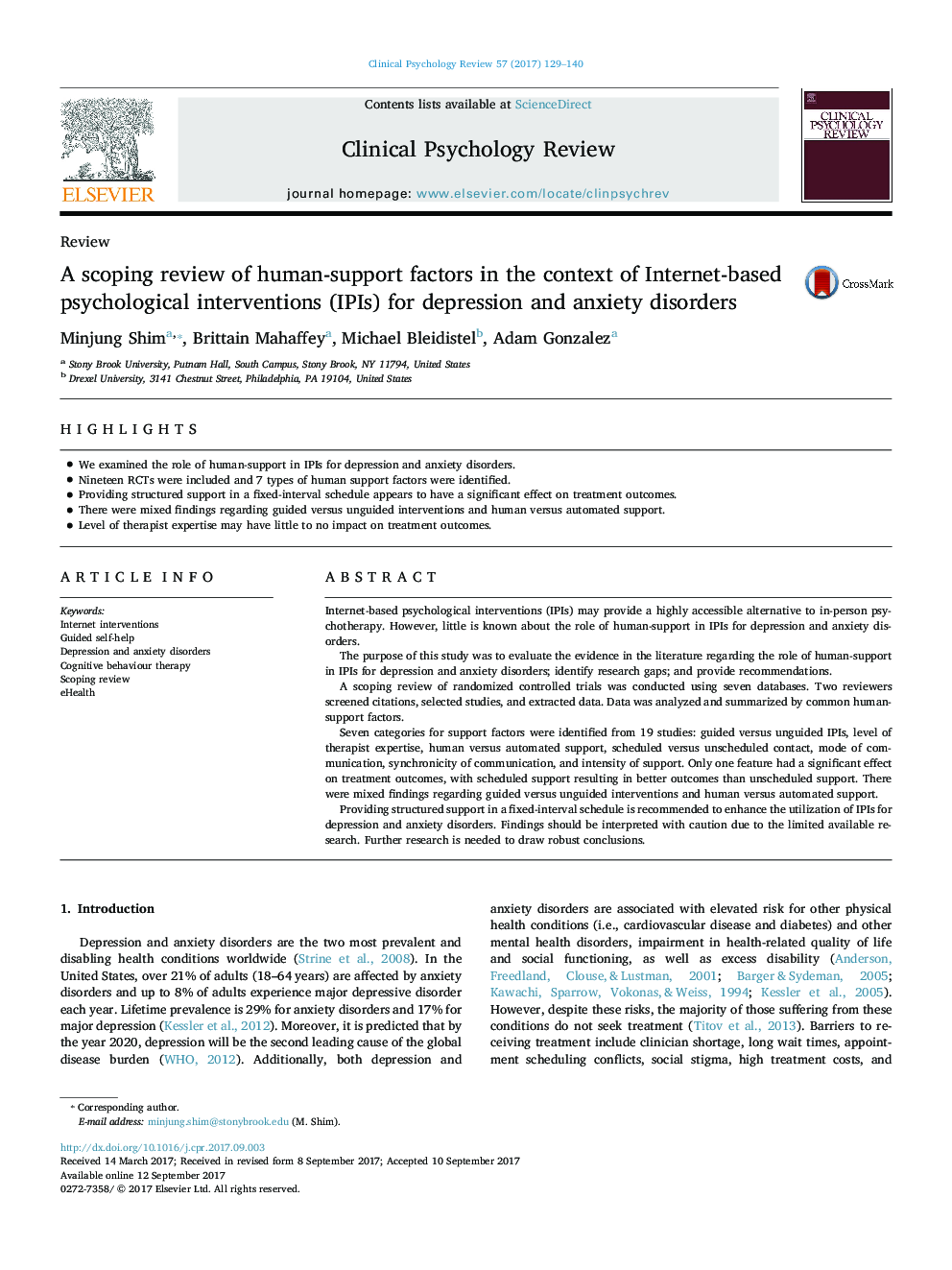| Article ID | Journal | Published Year | Pages | File Type |
|---|---|---|---|---|
| 5038447 | Clinical Psychology Review | 2017 | 12 Pages |
â¢We examined the role of human-support in IPIs for depression and anxiety disorders.â¢Nineteen RCTs were included and 7 types of human support factors were identified.â¢Providing structured support in a fixed-interval schedule appears to have a significant effect on treatment outcomes.â¢There were mixed findings regarding guided versus unguided interventions and human versus automated support.â¢Level of therapist expertise may have little to no impact on treatment outcomes.
Internet-based psychological interventions (IPIs) may provide a highly accessible alternative to in-person psychotherapy. However, little is known about the role of human-support in IPIs for depression and anxiety disorders.The purpose of this study was to evaluate the evidence in the literature regarding the role of human-support in IPIs for depression and anxiety disorders; identify research gaps; and provide recommendations.A scoping review of randomized controlled trials was conducted using seven databases. Two reviewers screened citations, selected studies, and extracted data. Data was analyzed and summarized by common human-support factors.Seven categories for support factors were identified from 19 studies: guided versus unguided IPIs, level of therapist expertise, human versus automated support, scheduled versus unscheduled contact, mode of communication, synchronicity of communication, and intensity of support. Only one feature had a significant effect on treatment outcomes, with scheduled support resulting in better outcomes than unscheduled support. There were mixed findings regarding guided versus unguided interventions and human versus automated support.Providing structured support in a fixed-interval schedule is recommended to enhance the utilization of IPIs for depression and anxiety disorders. Findings should be interpreted with caution due to the limited available research. Further research is needed to draw robust conclusions.
